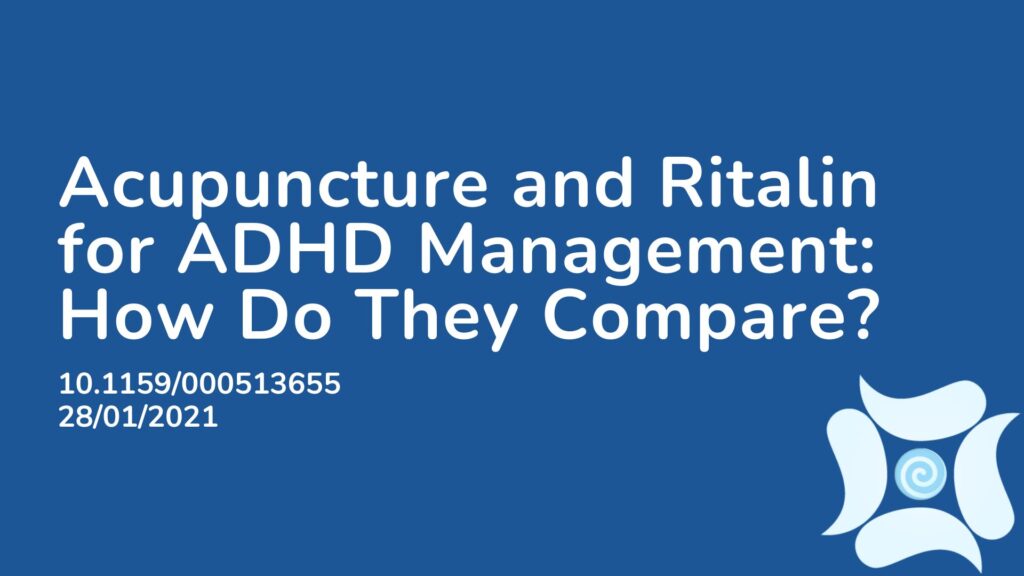Summary:
This study is a systematic review and meta-analysis of randomized controlled trials examining whether acupuncture is effective for treating ADHD in children and adolescents compared to methylphenidate hydrochloride (commonly known as Ritalin). The study involved 876 patients and revealed that acupuncture had a significantly higher effective rate than MPH overall, but was less effective at reducing hyperactivity scores. Two studies reported no adverse events with acupuncture, and one suggested acupuncture could reduce adverse drug reactions. Three studies found acupuncture’s benefits persisted post-treatment. Given that many side effects and adverse events are reported after children and adolescents take Ritalin, acupuncture may be a safer option. Despite these findings, evidence is limited by a small number of studies. Further research is needed to confirm these results, including well-designed trials assessing adverse events and long-term follow-ups to determine acupuncture’s efficacy, safety, and side effects for ADHD in children and adolescents.
Abstract:
Background: This study aimed to assess the efficacy of acupuncture for treating attention deficit hyperactivity disorder (ADHD) in children and adolescents. Patients and Methods: Systematic review and meta-analysis including randomized controlled trials that compared the effects of acupuncture treatment (AT) with pharmacotherapy (methylphenidate hydrochloride, MPH) among patients with ADHD. A total of 12 electronic databases were searched from inception until February 3, 2020. The main outcomes were the effective rate and post-treatment hyperactivity scores. We also assessed the incidence of adverse events and follow-up course. Results: A total of 10 studies involving 876 patients were included in this study. The meta-analysis revealed that AT yielded a significantly higher effective rate than MPH (odds ratio 2.239, 95% CI 1.438–3.487, p < 0.001, 8 studies), and that AT can reduce the hyperactivity scores to a lesser degree than MPH (standardized mean difference = –0.882, 95% CI –1.295 to –0.469, p < 0.001, 3 studies). Two studies reported no adverse events in the AT group, while one study suggested that AT can reduce adverse drug reactions. Furthermore, 3 studies concluded that the effects of AT were maintained, even after completion of treatment. Conclusion: This study suggests that AT may be more beneficial than MPH therapy for ADHD patients. However, the evidence may be highly limited, especially considering the outcome of hyperactivity scores with the high risk of bias, very low GRADE, and small number of studies. Thus, further studies of rigorous design and high quality are needed to confirm and strengthen the results, especially in the Western part of the world. Additionally, well-designed randomized controlled trials that evaluate adverse events and include a long-term follow-up should be conducted to determine the efficacy, safety, and side effects of AT for ADHD in children and adolescents.
Article Publication Date: 28/01/2021
DOI: 10.1159/000513655



